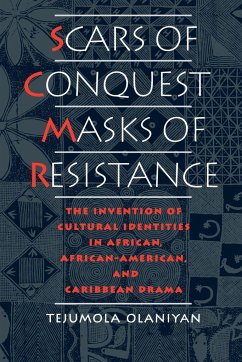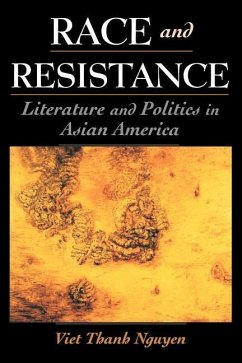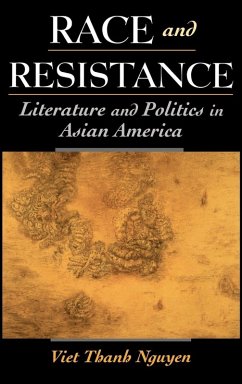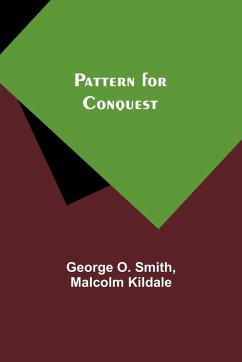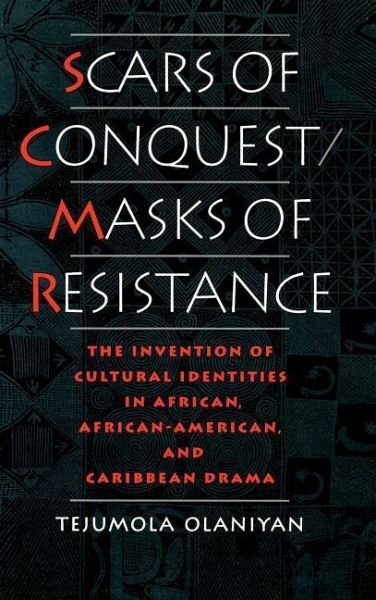
Scars of Conquest/Masks of Resistance
The Invention of Cultural Identities in African, African-American, and Caribbean Drama
Versandkostenfrei!
Versandfertig in 1-2 Wochen
129,99 €
inkl. MwSt.
Weitere Ausgaben:

PAYBACK Punkte
65 °P sammeln!
Looking in detail at the works of Baraka, Soyinka, Walcott and Shange and their historical trajectories in black anti-Eurocentric discourses, Olaniyan offers a sophisticated reading of how these writers are preoccupied with the invention of a post-imperial cultural identity. Drawing on contemporary theory and cultural studies, Olaniyan provides a meticulous account of the social foundations of an important aesthetic form, the drama of the African diaspora.




